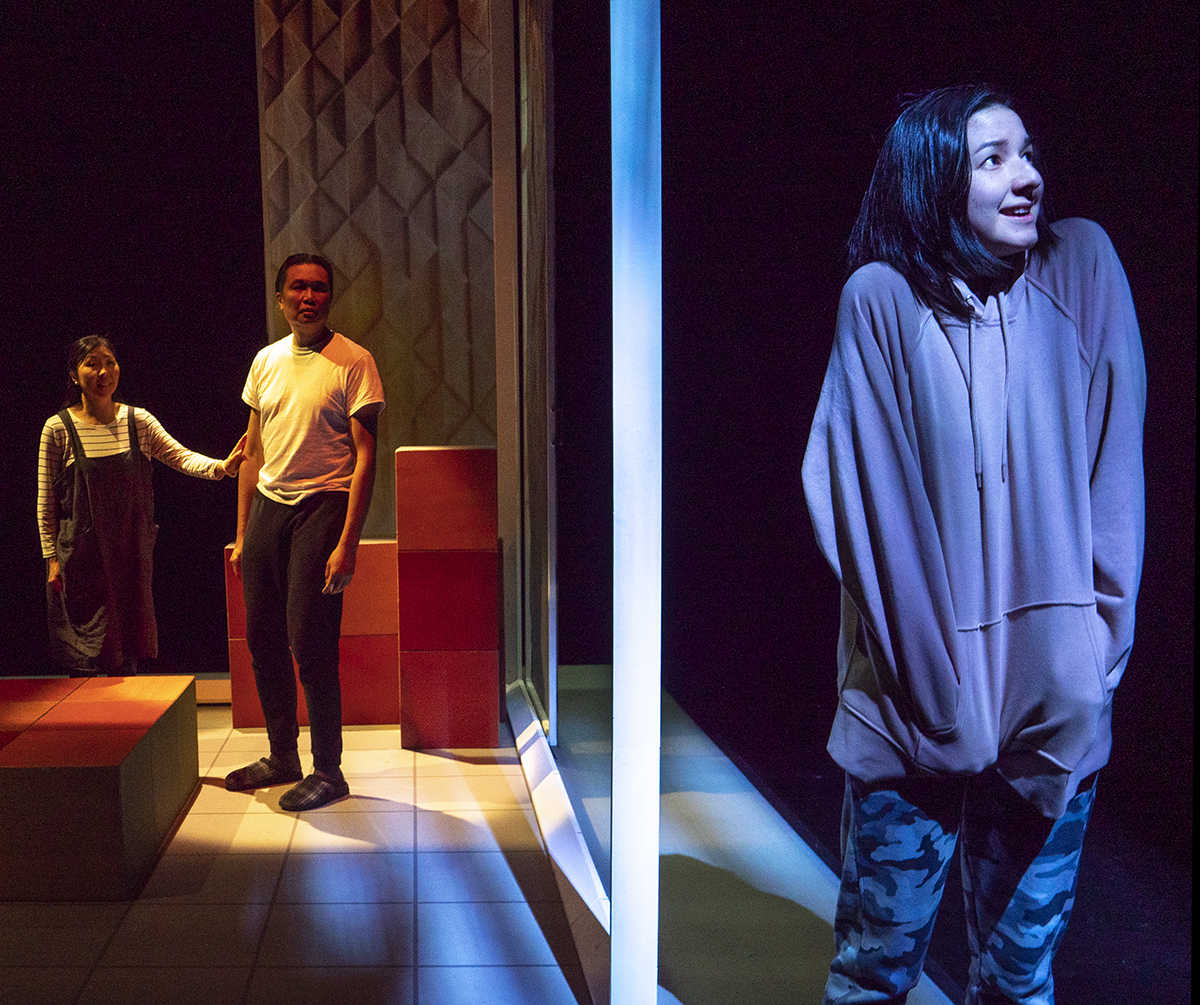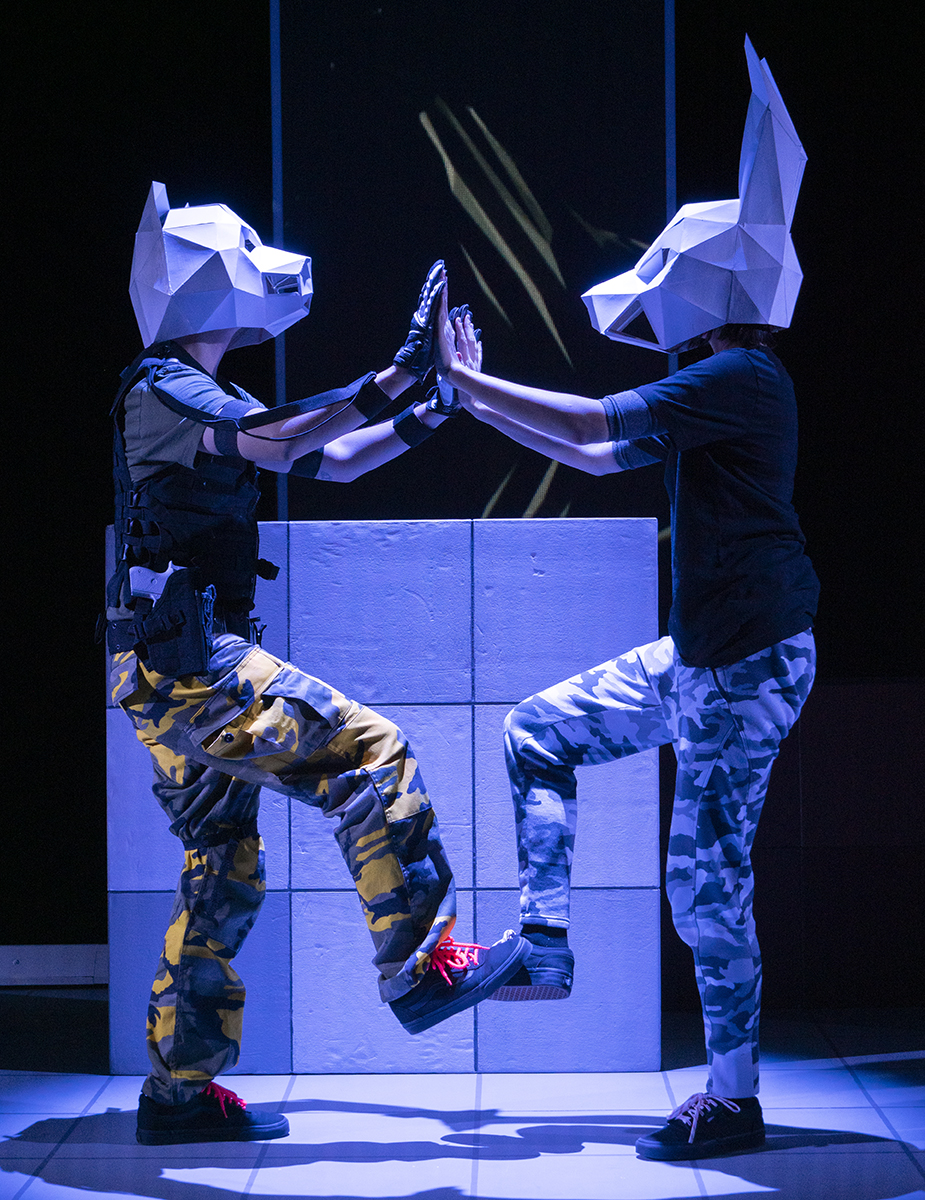
It is easy to see why “Kuroko” sold out its first week and the Cultch added an extra performance. The play is fun, emotional, and educational – everything you could want in a single show! I heard lots of laughter as well as tearful sniffling. It even contained a dance number.
The play tells the story of Maya, who is 23-years-old and has spent the last six years in her bedroom, playing virtual reality games. Her parents want to bring her back into the real world, but struggle to find ways to communicate without overwhelming her. Maya is a hikikomori, which are extreme recluses who spend their time in computer worlds. The hikikomori phenomenon is increasing in Japan, which the audience learns currently affects 3 million people.

The play does not shy away from the complexity of hikikomori, family issues, or prejudice. Right at the beginning, a character tells Maya’s father that families want to fix hikikomori, but instead, they need to look at the family patterns that hikikomori are trying to hide from. As the audience sees more and more and Maya’s family life, we understand why she went to extreme lengths to protect herself.
This sounds like a heavy story, but it’s also very funny. The simple sets are used brilliantly to represent Maya’s home, the subway, VR shooter games, and more. Lou Ticzon’s character is Maya’s friend in the virtual world and adds the perfect mix of comic relief. Kuroko is a Japanese story that anyone can enjoy. I’ve been to Japan and appreciated many of the cultural references, such as the food or Pachinko details, but I also liked that I didn’t get all of them.
There were times the audience chuckled and I knew I was missing out on the joke – but luckily not too many times.
– Bethany Dobson
